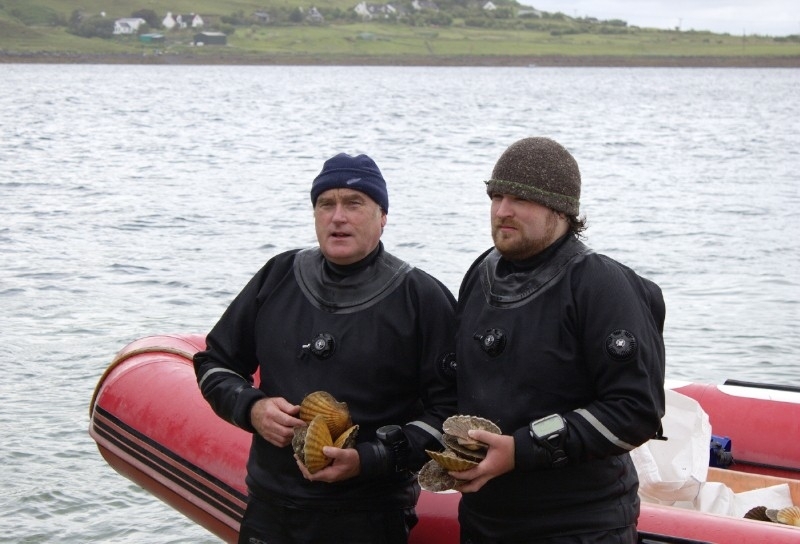A Skye scallop diver fears he is danger of losing his business because of what he calls “bureaucratic nonsense” over toxin testing.
David Oakes, 57, – who calls his scallops “the best in the world” – was forced to shut down for five weeks this summer after naturally occurring toxins were found in the gut of some scallops by Food Standards Scotland (FFS).
He said that the stoppage meant he would make no profit from the busy summer season.
And his son Ben, who returned to join the family business after studying for a degree in sustainable environmental management in Edinburgh, may have to leave to find work elsewhere.
The scallops are harvested by hand off Skye and are sold to several top restaurants across the country, with Mr Oakes biggest customer being the Michelin-starred Three Chimneys restaurant at Dunvegan on the island.
Mr Oakes, who has been farming scallops on Skye since 1986, criticised the rules, calling them “very mad”, claiming that it would be impossible to fulfil the rules without reducing the quality of his scallops.
His product – known around the world as Sconser Scallops – are sold to restaurants still alive and in their shells.
It means that the scallops are sold with their guts intact, and these innards will contain any natural toxins collected from the water and algae in the loch, although the stomach is removed before cooking.
Mr Oakes said that non hand-dived scallops which are collected by dredging boats in large numbers are cleaned and shelled before they are sold to the restaurants and are not subject to the same level of testing.
He blamed FFS for the test failures but said they were hamstrung by rules set by the EU.
Mr Oakes said: “I’ve dedicated my life to this and I believe that my scallops are the best in the world.
“This is all bureaucratic nonsense and it needs to change. The parts of the scallops where the toxins are found are all removed anyway so there’s no risk to anyone.”
A spokeswoman for FSS said that bivalve molluscs such as scallops and mussels can accumulate toxins from naturally occurring algal “blooms” especially in summer.
She added: “The principal concern of the FSS is to ensure that food is safe for consumers. The consumption of shellfish containing high levels of these toxins can lead to serious illness, the reason why there are very specific controls set out in EU wide regulation governing the production and sale of such molluscs.
“FSS officials are due to meet with Mr Oakes this week in order to outline those controls and to discuss how these should apply in more detail.”
